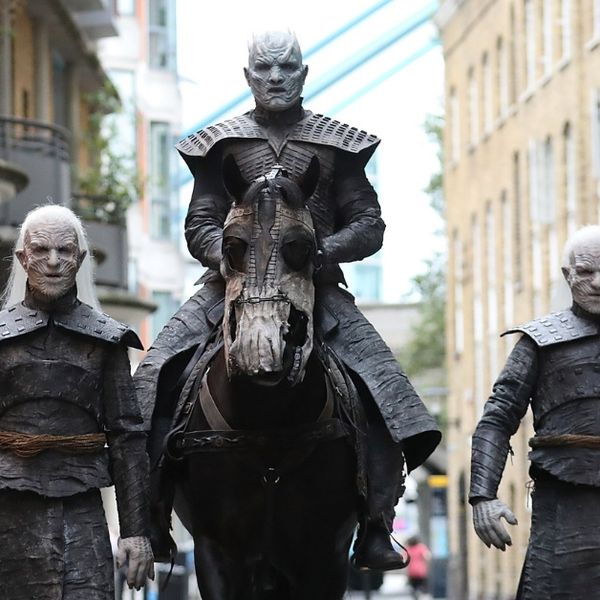August, 2001, LOS ANGELES - I grew up listening to radio dramas. As a child, I memorized and recited the cheery jingles from children's shows like "Happy Theater." As I grew older, I thrilled to the adventure on shows like "Bobby Benson and the B-Bar-B Riders" and "Sergeant Preston and His Yukon King." The big city kid in Los Angeles listening only to the sound of actors' voices coming out of a box was transported to the dusty excitement of the old West by "The Lone Ranger" and "The Cisco Kid." I listened to film dramatizations on "Lux Radio Theater" to relive movies that I had enjoyed before or to "see" those that I had missed. Radio was my magic transporter. And my conjurors were the actors that brought the stories to life - with only their voices, accompanied by sound effects, they magically took me to another place, another time and new sensations. I loved radio.
Radio was wonderful story telling. It was the ancient tradition of sharing a tale around the campfire - except that my campfire was a radio in our living room. It was the technological campfire of the times. The whole family gathered around the radio to be chilled by thrillers like "The Shadow."
Vocal storytelling still exists today. But it's not all on radio anymore. It's called "books on tape." There are superb readings of novels on audio tape. For those who commute long distances in their cars, it's a great way to "read" a novel as they drive. People taking public transportation can listen to them on their way to work. Hospitalized people can listen as they recuperate. I love audio tapes as I used to love radio dramas. They keep alive the wonder of spoken storytelling. And now that I am a professional actor, I am among those storytellers. I've enjoyed reading many novels onto audio tape. Of course, there are the Star Trek novelizations, but I've also read onto tape such classics as the "Sherlock Holmes" novels. I particularly enjoyed reading my own autobiography, "To The Stars," on tape. I'm happy that there is a medium where the simple sound of an actor's voice can stimulate the imagination and vicariously take the listener on fictional as well as autobiographical journeys.
After the cancellation of the "Star Trek" television series, we worked on the voices of our characters on the animated version of "Star Trek." It became another unexpected extension of the "Star Trek" phenomenon. I must confess, however, that working on the cartoon version was not as satisfying as acting in the television version because the scenes weren't read with the other actors. I did the voice of Sulu solo without my colleagues to bounce off of. It wasn't as much fun. But it was still using our vocal tool to give life to our characters. Actually, voice acting could be more challenging because that tool alone -- with only the rather stiff animation as the visuals -- had to tell the story. I'd like to think that the voice of the actor is still essential to the recounting of a good story.
 Indeed, accelerating advances in technology have shot up the use of the vocal tool for Star Trek storytelling to amazing heights. For the last few years, I've been working with Interplay Entertainment Corp. on a series of Star Trek CD Rom games called Starfleet Command and another called Klingon Academy. This is no longer sitting around the old campfire merely listening to a story as it is told. CD Rom games suck the listener directly into the narrative as active participants in Star Trek adventures. And there I am as Captain Sulu, blazing across astoundingly real galaxies blasting away at Klingons - and the "listeners" are right there engaged with me as wily adversaries or full, decision making partners. My next one for Interplay, "Star Trek: Shattered Universe," will have Captain Sulu on the USS Excelsior caught in the mirror universe from the television episode, "Mirror, Mirror." My vocal chords are already aching to become the viciously scarred Sulu and then the heroic Sulu that we all know and love. The vocal challenges will be bracing.
Indeed, accelerating advances in technology have shot up the use of the vocal tool for Star Trek storytelling to amazing heights. For the last few years, I've been working with Interplay Entertainment Corp. on a series of Star Trek CD Rom games called Starfleet Command and another called Klingon Academy. This is no longer sitting around the old campfire merely listening to a story as it is told. CD Rom games suck the listener directly into the narrative as active participants in Star Trek adventures. And there I am as Captain Sulu, blazing across astoundingly real galaxies blasting away at Klingons - and the "listeners" are right there engaged with me as wily adversaries or full, decision making partners. My next one for Interplay, "Star Trek: Shattered Universe," will have Captain Sulu on the USS Excelsior caught in the mirror universe from the television episode, "Mirror, Mirror." My vocal chords are already aching to become the viciously scarred Sulu and then the heroic Sulu that we all know and love. The vocal challenges will be bracing.
This medium of work also provides the relief of greater scheduling flexibility than does acting on film or television. Voice work has granted me the blessing of maintaining my career, and, at the same time, managing the unpredictable needs of my mother's continuing illness. If problems should crop up at home, recording calls could be rescheduled without causing too much inconvenience to too many others. With film or television work, rearranging shooting schedules would be well nigh impossible. So, over the past month, I've been able to do voice work on Disney's new CD Rom game, "Freelancers," and animated shows such as "Team Atlantis" and "Samurai Jack." Yet to air are such animated shows as "Jackie Chan" and another episode of "The Simpsons."
From the kid listening to that radio so long ago in Los Angeles and transported to adventures in the old West to the professional actor who now transports fans soaring into galactic explorations, the sound of the human voice has always been my charmed vehicle of transport.
Woman Was Fired For Refusing To Wear A Bra At Work—And Now She's Suing
Christina Schell, from Alberta, Canada, stopped wearing bras three years ago citing health reasons.
While Schell did not specify the health reasons, she did state she finds them to be "horrible."
But after her refusal to sign or adhere to a new enforced dress code policy to wear a bra or tank top under her work shirt at a golf course grill where she worked, Schell was promptly fired.
Now, the 25-year-old has filed a human rights violation against the Osoyoos Golf Club, Osoyoos, in British Columbia, Canada.
Schell said:
"I don't think any other human being should be able to dictate another person's undergarments."
When she asked the general manager, Doug Robb, why she had to comply, the manager told her the mandate was for her protection.
Robb allegedly said:
"I know what happens in golf clubs when alcohol's involved."
After losing her job, she brought the case to the British Columbia Human Rights Tribunal and told them the club's dress code was discriminatory because the rule didn't apply towards male employees.
Schell told CBC:
"It's gender-based and that's why it's a human rights issue. I have nipples and so do the men."
David Brown, an employment lawyer in Kelowna, BC, said gender-specific dress codes could be viewed as discriminatory under the BC Human Rights Code.
He stated:
"It's an interesting question as to whether or not an employer can dictate the underwear that women can wear, but they don't say anything about the underwear that men can wear, and does that create an adverse impact on the individual?"
Brown added:
"If this policy is found to be discrimination, the next question is does the employer have a bonafide occupational requirement to essentially impose this on the individual?"
"I'm kind of scratching my head as to what that occupational requirement would be."
@GlobalBC The policy is sexist the peopl supporting it are sexist. Hope she wins her complaint— Lori bell (@Lori bell) 1529692660.0
@Shelby_Thom @WoodfordCHNL @GlobalOkanagan @GlobalBC Then men should have to wear either a tank top or undershirt— caffene fiend (@caffene fiend) 1529624161.0
@SoldByBrock @Shelby_Thom @GlobalOkanagan @GlobalBC What does common courtesy have to do with wearing a bra? Breast… https://t.co/ZVI2xDdpgf— M Shumway (@M Shumway) 1529843759.0
As for the tank top option, due to working under oftentimes extreme heat serving tables outsides, Schell did not want to wear another layer of clothes just because of her gender.
Schell said:
"It was absurd. Why do you get to dictate what's underneath my clothes?"
Employment lawyer Nadia Zaman told CBC that the club can enforce a gender-specific policy as they deem necessary as long as the establishment can prove it is for the occupational safety of its workers.
But the attorney questioned if forcing female employees to wear a bra was applicable in this case.
Zaman stated:
"If they simply require that female employees wear a bra but then they don't have a similar requirement for males, and they can't really justify that … then there is a risk that their policy's going to be deemed to be discriminatory."
Under British Columbia's discrimination law, it is illegal for employers:
'to discriminate against any individual because of his race, color, religion, sex, or national origin'.
@GlobalBC @globalnews Logistically bras or the absence of does not impact health or work performance. That is my v… https://t.co/65cLHBMowf— Louisette Lanteigne (@Louisette Lanteigne) 1529769211.0
McDonald's employee Kate Gosek, 19, agrees with Schell in that the dress code is "unnecessary." She too was harassed by her employers at a McDonald's in Selkirk, Manitoba, over refusing to wear a bra.
"She just told me that I should put on a bra because, McDonald's—we are a polite restaurant and no one needs to see that."
Schell's case sparked plenty of debates on Twitter.
@DunnMan77 @GlobalBC It's just discriminatory, woman shouldn't have to wear bras if they don't want to. As well as… https://t.co/RXhRVWUuNy— Mary Johnson (@Mary Johnson) 1529685276.0
@DunnMan77 @GlobalBC Men do not have to wear underpants if they don't want to. As of right now there are no laws to… https://t.co/l8FuPVybWo— Mary Johnson (@Mary Johnson) 1529686418.0
@GlobalBC Women have the right not to be forced to wear a bra Shaving & makeup also is a choice. If you want to do… https://t.co/Ybkj6PLDnD— Lozan (@Lozan) 1529686156.0
@Lozan72 @GlobalBC I would completely understand her and your argument if we were talking about a potential law to… https://t.co/trRyNAubn4— Chris George (@Chris George) 1529690293.0
@GlobalBC This story frustrates me. There's no dress code equivalent for men? Well if I saw the outline of a male s… https://t.co/5YbAvXKRcO— Molly Max (@Molly Max) 1529705327.0
Schell is not alone in her disdain for bras.
@GlobalBC I personally HATE wearing a #bra absolutely hate it with passion and unashamed to admit it. I HATE BEING… https://t.co/GEi3LtxIDa— Lozan (@Lozan) 1529686305.0
Schell is still waiting to hear from the Human Rights Commission about her claim.
H/T - GettyImages, Twitter, Indy100, CBC











